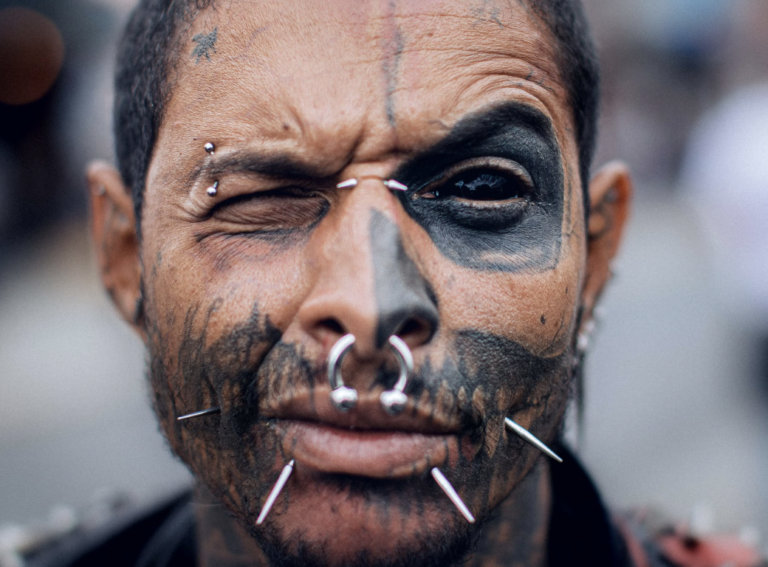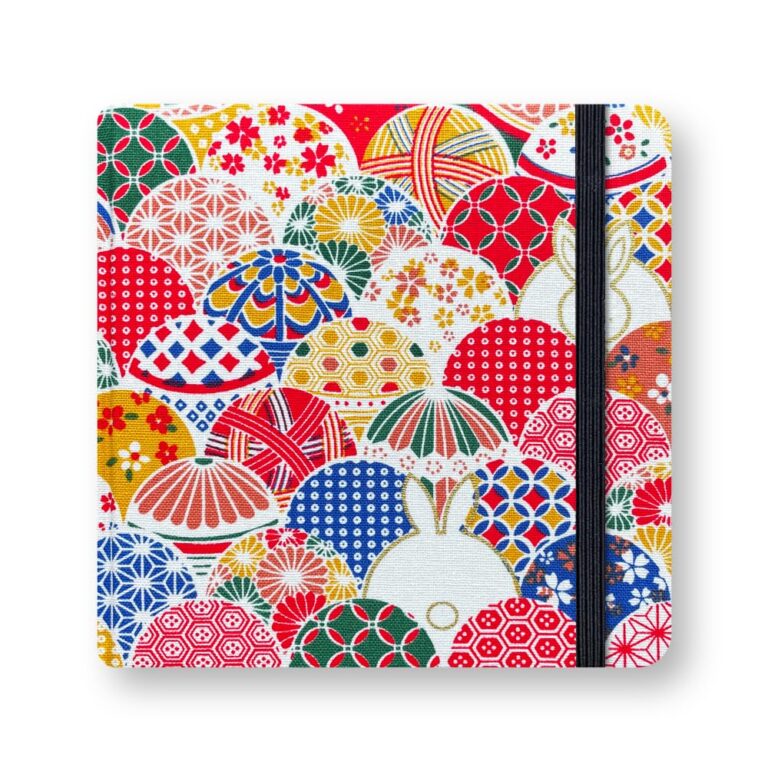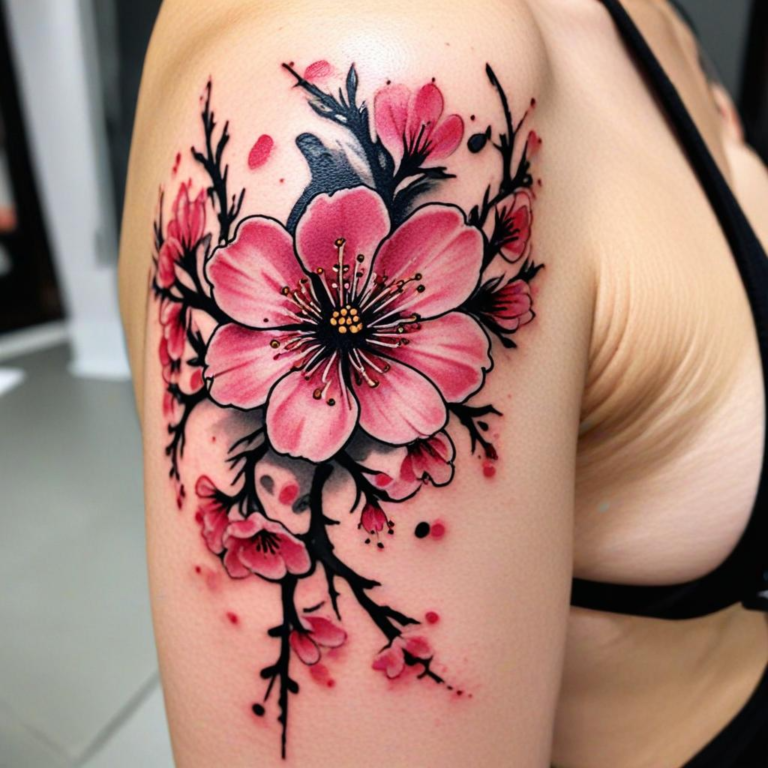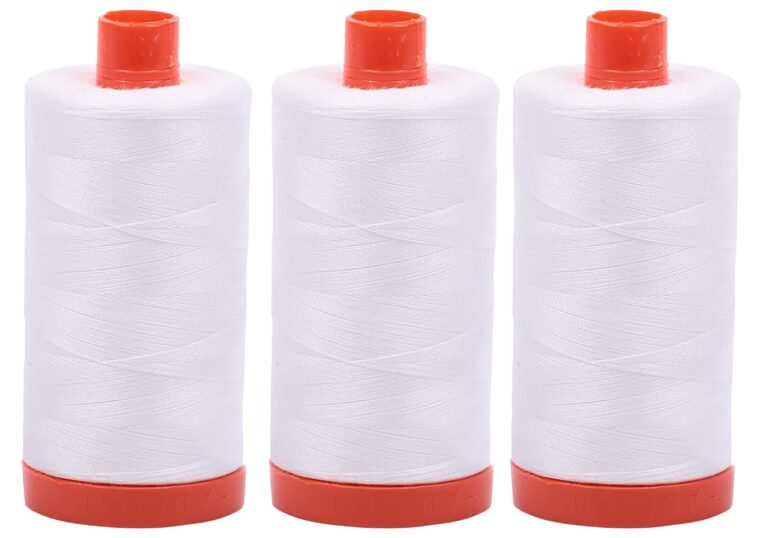A tattoo is a form of body art created by inserting ink into the skin's dermis layer, resulting in a permanent design.
When you get a new tattoo, it's essential to know how to care for it, especially during sleep, to ensure proper healing and prevent damage.
To sleep with a new tattoo without compromising its healing, you need to take specific steps to protect your skin while also ensuring you get a good night's rest.
This includes considering the right sleeping positions and choosing breathable bedding, among other factors.
In this post, we will explore essential tips to keep your tattoo safe while you catch those much-needed Z's.
Understanding Tattoo Healing Process

Understanding the tattoo healing process is essential for ensuring your new ink looks great for years to come. The healing journey typically lasts about two to four weeks. During this time, your tattoo may appear red, swollen, and tender, which is a normal part of the healing process.
Scabbing and peeling may occur as the days go by. It's crucial not to pick at these scabs, as this may damage your tattoo and lead to unwanted scarring. Instead, keeping the area moisturized with a fragrance-free lotion or a specialized tattoo ointment may support healing.
Avoiding direct sunlight is important during the healing phase, as UV rays may fade your tattoo. Keeping your tattoo clean is also vital; gently wash it with mild soap and water, pat it dry, and avoid soaking it in water, such as swimming pools or hot tubs.
Preparing Your Tattoo Before Sleep
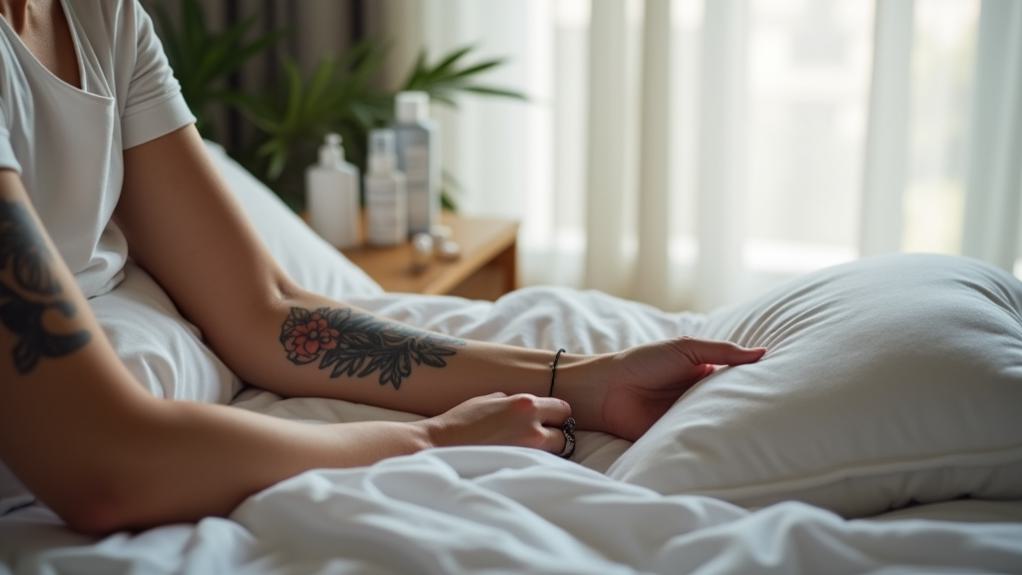
Preparing Your Tattoo Before Sleep
Properly preparing your tattoo before sleep may significantly impact its healing process. Here are four essential steps to follow:
- Cleanse Gently: Wash your tattoo with a mild, fragrance-free soap to remove dirt and bacteria. This may help keep it clean and safe.
- Moisturize: Apply a thin layer of fragrance-free tattoo ointment or moisturizer. This may keep your skin hydrated and promote healing, reducing the likelihood of scabbing.
- Avoid Tight Clothing: Opt for loose-fitting pajamas that may prevent irritation and allow your skin to breathe.
- Protect Your Sheet: Lay down a clean, soft cloth or old towel over your sheets. This may provide an extra layer of protection against ink transfer or irritation during the night.
By following these steps, you may sleep better knowing you've taken care of your new tattoo.
Best Sleeping Positions

When sleeping with a new tattoo, it's important to avoid putting direct pressure on the tattooed area to promote comfort and healing.
If your tattoo is on your arm, sleeping on your back or the opposite side may be best. For leg tattoos, elevating the leg on a pillow may help reduce swelling and keep the tattoo safe from pressure.
For torso tattoos, sleeping on your back may minimize friction and allow the skin to breathe.
If you typically sleep on your stomach, you may need to adjust your sleeping position temporarily, as this may cause excessive rubbing or pressure on the tattoo, hindering the healing process.
Always listen to your body; if a position feels uncomfortable, it may be a sign to change it.
Prioritizing comfort may help ensure your tattoo heals beautifully.
Choosing the Right Bedding
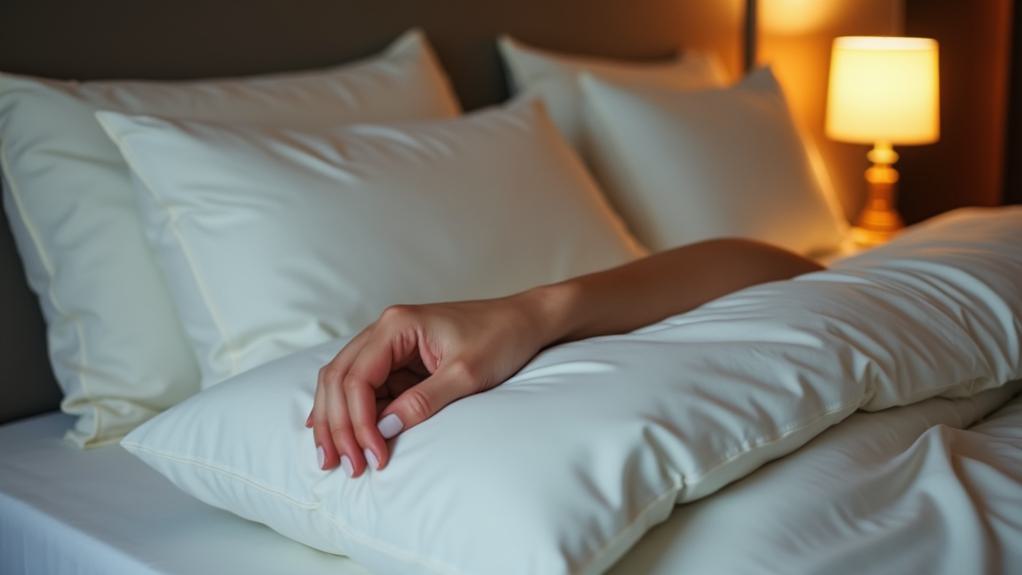
When you've got a fresh tattoo, the right bedding can make all the difference in your comfort.
Choosing materials that are soft and breathable helps your skin heal without irritation, and paying attention to thread count guarantees your sheets feel luxurious against your skin.
You'll want to create a cozy sleeping environment that promotes healing and relaxation.
Material Matters
Choosing the right bedding material is crucial for protecting your new tattoo during the healing process. The following materials may provide comfort and reduce irritation on your fresh ink:
- Cotton: Cotton may be the best choice for tattooed skin as it's soft, breathable, and hypoallergenic. It may also help wick away moisture, keeping your tattoo dry.
- Bamboo: Bamboo sheets may be beneficial since they're naturally antibacterial and incredibly soft. They may help keep you cool at night, reducing the risk of sweating that could affect your tattoo.
- Linen: Linen may be suitable due to its durability, breathability, and moisture-wicking properties. Its natural texture may feel comfortable against sensitive skin.
- Microfiber: Microfiber sheets may be an affordable alternative. They're lightweight and may provide a cozy feel without causing friction on healing skin.
Making an informed choice may ensure a comfortable night's sleep while your tattoo heals!
Thread Count Importance
A higher thread count may significantly enhance your comfort while sleeping with a new tattoo. Sheets with a thread count of 300 or above may provide a softer, smoother surface that minimizes friction against your healing skin, which is crucial as rough fabrics may irritate your tattoo, leading to discomfort or complications in the healing process.
Cotton may be a preferable choice due to its breathability and moisture-wicking properties, helping to keep your skin dry and comfortable throughout the night. Low-quality sheets may feel scratchy or stiff, potentially exacerbating irritation.
Additionally, higher thread count sheets may hold up better after multiple washes, maintaining their softness and comfort. Washing your sheets in gentle, fragrance-free detergent may also help avoid allergic reactions that could affect your tattoo.
Moisturizing and Aftercare Tips
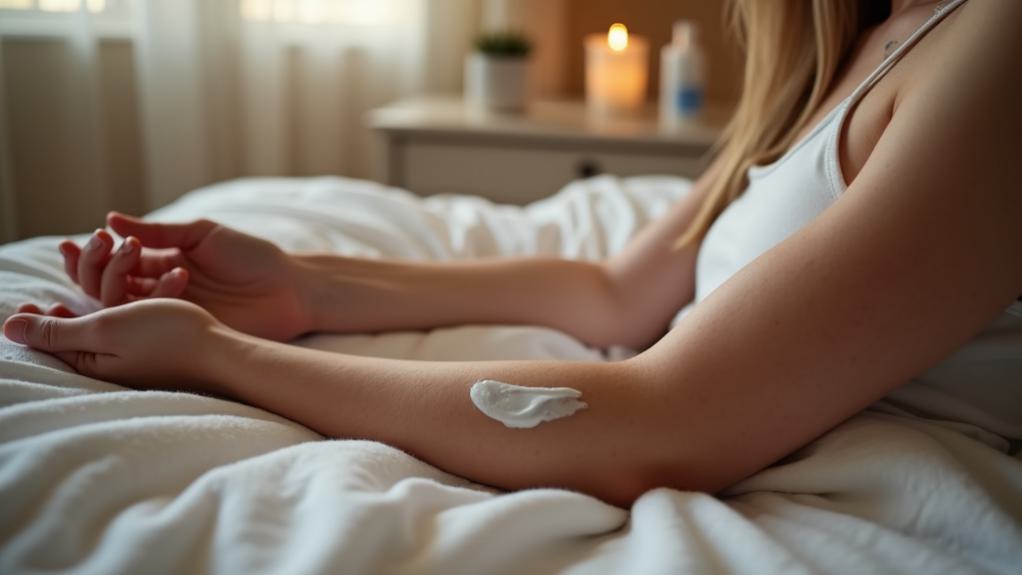
When you've got a new tattoo, choosing the right moisturizer is essential for keeping your skin healthy and vibrant.
You'll want to apply it regularly using a gentle technique to avoid irritating your fresh ink.
Let's explore how to pick the best product and the proper application frequency for your tattoo care routine.
Choosing the Right Moisturizer
Finding the right moisturizer for your new tattoo is crucial for proper healing. A good moisturizer may keep the skin hydrated and aid in preventing scabbing and fading.
Here are four key factors to consider when choosing your tattoo moisturizer:
- Natural Ingredients: Moisturizers with natural ingredients like aloe vera or coconut oil may soothe and nourish the skin without causing irritation.
- Fragrance-Free: Products with artificial fragrances should be avoided, as they may irritate sensitive skin and disrupt the healing process.
- Non-Comedogenic: Look for moisturizers labeled as non-comedogenic, as they may not clog your pores, helping to prevent breakouts around your fresh ink.
- Hypoallergenic: Hypoallergenic options may be best, especially for those with sensitive skin, as they're less likely to cause allergic reactions and may help ensure your tattoo heals beautifully.
Choosing the right moisturizer may significantly impact your tattoo's healing journey.
Taking the time to select wisely may protect your art and enhance its vibrancy for years to come.
Application Frequency and Technique
Proper application frequency and technique are essential for keeping your new tattoo healthy and vibrant. Apply a thin layer of moisturizer to your tattoo two to three times a day for the first two weeks to maintain hydration and promote healing. Overapplying may suffocate the tattoo and lead to issues.
Gently rub the moisturizer in with clean hands, avoiding cotton balls or pads that may irritate the skin. Pat it on lightly to allow for absorption without excessive friction. Always ensure your hands are clean before touching your tattoo to prevent infection.
Monitor your skin's response; if it feels too dry, you may need to increase the frequency. Conversely, if you notice excessive shine or greasiness, scale back.
Avoid scented products or those containing alcohol, as they may irritate your fresh ink. Following this routine and technique may help your tattoo remain vibrant and well-healed.
Dealing With Itching and Irritation
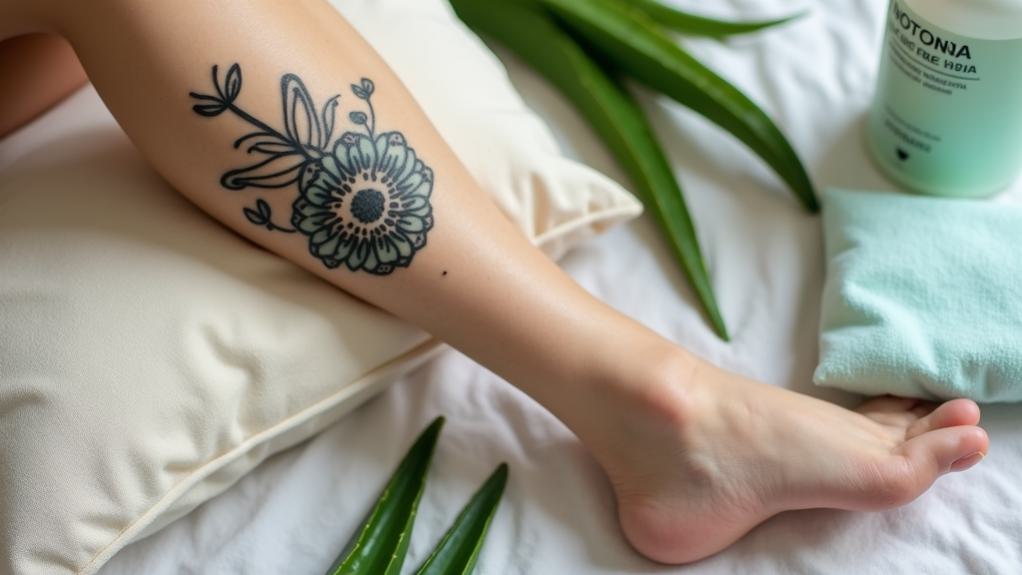
Itching and irritation after getting a new tattoo are common as your skin heals. Here are effective strategies to manage these sensations:
- Moisturize Regularly: Keeping your tattoo hydrated may help reduce dryness and irritation. Use a recommended tattoo aftercare ointment to soothe your skin.
- Wear Loose Clothing: Loose-fitting pajamas may minimize discomfort while sleeping, as tight fabrics can rub against your tattoo and worsen irritation.
- Avoid Scratching: Scratching may lead to infection and damage your tattoo. Instead, gently pat the area if it itches.
- Cool Compress: Applying a cool, damp cloth to the area may provide temporary relief from unbearable itching without disrupting the healing process.
What to Avoid While Sleeping
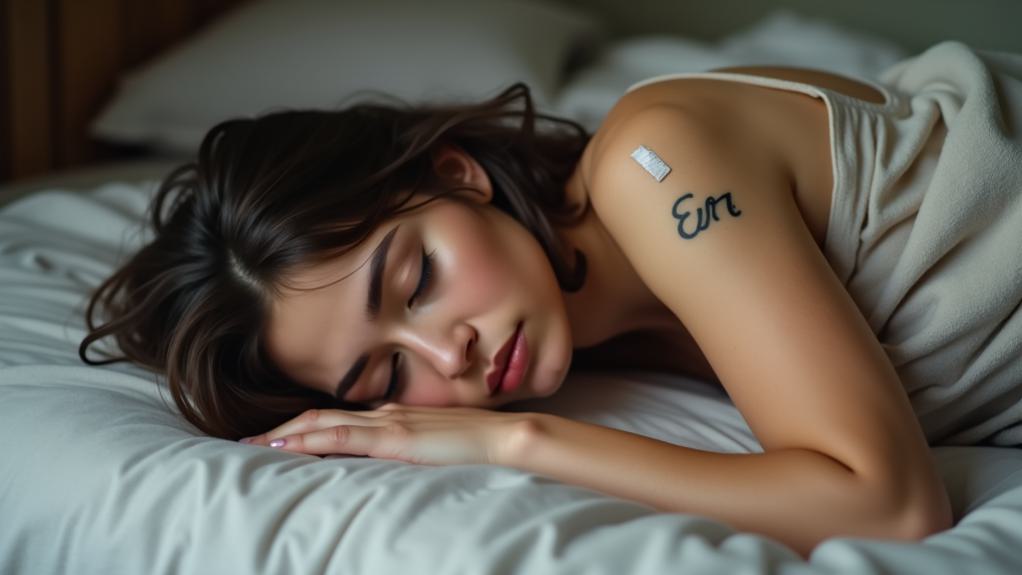
When you have a new tattoo, avoid sleeping on the tattooed area, as this may cause irritation, rubbing, and damage to the ink. Instead, try to sleep on your back or on the side opposite the tattoo.
Additionally, tight clothing or bedding may press against the tattoo, so opt for loose, breathable fabrics to keep the area comfortable and allow it to breathe.
Excessive moisture may lead to infections or prolong healing, so steer clear of sleeping in humid environments. Heavy blankets may add pressure to the tattoo, so it's best to use lighter covers.
Lastly, resist the urge to scratch or pick at any scabs that may form, as this may lead to scarring and affect the final appearance of your tattoo.
Frequently Asked Questions
Can I Sleep With a Bandage on My Tattoo?
Yes, you may sleep with a bandage on your tattoo, especially in the first few days after getting it.
The bandage may help protect the tattoo from dirt and bacteria, which is essential for healing.
Just make sure it's not too tight, as you don't want to restrict blood flow.
If the bandage gets too wet or dirty, you may want to change it promptly to keep your tattoo safe and promote healing.
How Long Should I Avoid Sleeping on My New Tattoo?
You should avoid sleeping on your new tattoo for at least two weeks.
This may help prevent irritation and allow the tattoo to heal properly. If you can, try to sleep on your side or back, keeping the tattooed area exposed to air.
Using a clean, soft sheet may minimize friction. If you notice any discomfort or irritation, you may need to adjust your sleeping position to protect your tattoo as it heals.
Is It Safe to Sleep With a Pet After Getting a Tattoo?
It may be safe to sleep with a pet after getting a tattoo, but there are a few precautions you should take.
Make sure your tattoo is fully covered and protected from any potential scratching or licking.
Keeping your pet clean and groomed may help minimize the risk of infection.
If your pet tends to be overly playful or curious, it may be best to sleep in a separate room for a few nights.
What if My Tattoo Sticks to My Sheets Overnight?
If your tattoo sticks to your sheets overnight, gently peel the fabric away from your skin without pulling.
If you feel any pain or resistance, stop and apply a bit of lukewarm water to loosen the fabric.
Afterward, clean the area with mild soap and pat it dry.
Keeping your sheets clean and using breathable fabrics may help prevent this issue, so consider making those changes for a smoother sleep experience.
Can I Use a Pillow on My Tattooed Area While Sleeping?
You can use a pillow on your tattooed area while sleeping, but it's best to be cautious.
If your tattoo is fresh, it may be sensitive, and pressure could lead to discomfort or irritation.
To protect it, you may want to consider using a clean, soft pillowcase and placing a thin cloth over the tattoo.
This way, you may avoid direct contact and help keep it safe during the night, ensuring a more restful sleep without worries.
Conclusion
In summary, taking care of your new tattoo while you sleep is essential for its healing. By following the tips outlined—like cleansing, moisturizing, and choosing the right sleeping position—you'll help guarantee that your tattoo heals beautifully. Remember to keep an eye out for any signs of irritation and stick to your aftercare routine. With a little extra attention during this healing phase, you can enjoy your new ink without complications.


